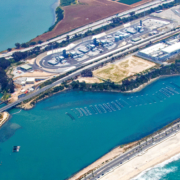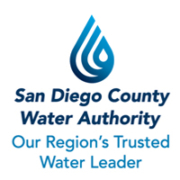Water District Has Plans in Place for Nightmare Scenario
“This is an out-of-the-box situation that I’ve never dealt with before,” admitted Valley Canter Municipal Water District Gen. Mgr. Gary Arant at Monday’s board meeting, which, due to the evolving coronavirus crisis (is there any other kind now?) was held with one director teleconferencing and all of the staff and directors “social distancing” by maintaining at least six feet away from each other in the board room.
At the meeting Gaby Olson, VCMWD’s Safety and Regulatory Supervisor, gave an overview of the district’s Pandemic Response Plan, which is how the district will respond to what has become the nightmare scenario of the decade, if not the most serious crisis since 9-11.
The plan recognizes a stark fact of life: even in the midst of a crisis where people may be sheltering in place and most commerce has ground to a halt, no matter how many employees are out sick, you can’t stop delivering water to the public. You must do whatever must be done to keep the water flowing from the tap.




